The tyranny of chronology: Part 1 - From year-by-year to minute-by-minute
This series of posts is based on the presentation given by Martin Belam at the 'News Innovation' unconference in London on July 10th 2009. The views expressed are my own, and do not represent the views of Guardian News & Media.
From year-by-year to minute-by-minute
I wanted to start with this, arguably the first British newspaper, the Anglo-Saxon Chronicle.
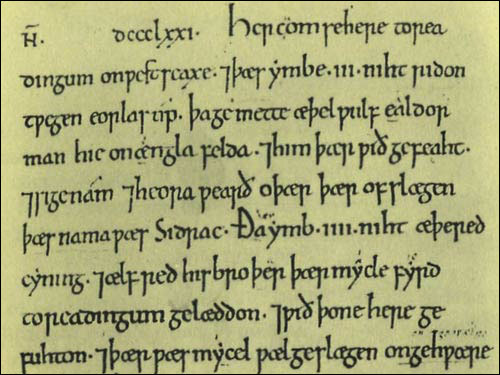
OK, well it wasn't on paper, it was on vellum and parchment, but it set a pattern of reporting news that we would recognise today. Monks and scribes copied stories that centered around a basic format of:
"Someone [A member of royalty, the establishment, the elite, the clergy or the minor celebs of the day] did Something, Somewhere, and there was a Consequence"
The events described focus on births, deaths, battles and the ascendence to power, and they are arranged in strictly chronological order.
In fact there are some bits we really would recognise from today's news. Take my favourite entry. And you know I have to be a bit of a history geek to even have a favourite entry in the Anglo-Saxon Chronicle. This is A.D. 671
"This year happened that great destruction among the fowls."
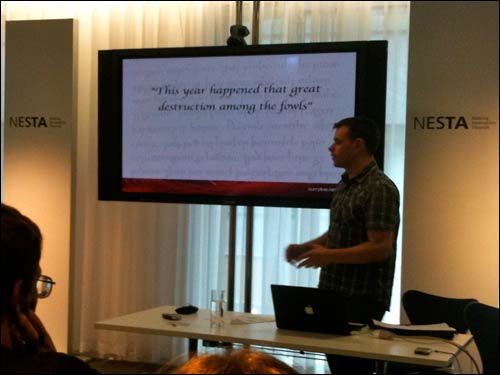
Photograph of Martin Belam at 'News Innovation' by Adam Tinworth
This is a health'and'safety panic over avian flu, and a slow news year all rolled up in one.
Of course, a thousand or so years later, our distribution methods have changed. Whether it is royal proclamations or council newspapers, broadsides or broadsheets, the town crier or a YouTube channel, technology has constantly evolved the way that news has been delivered to the masses. And now, in the digital era, we find ourselves with this:
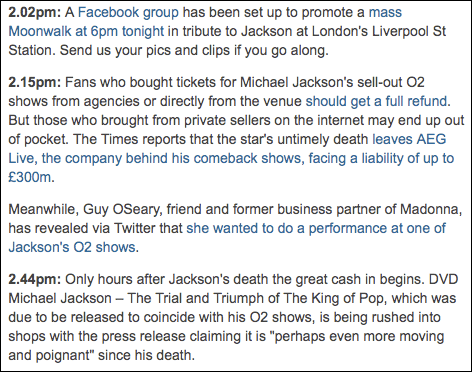
Yes, rather than strictly in year-by-year order, we tell stories in live blogs minute-by-minute.
The tyranny of chronology
Now, when I mentioned that I was going to talk about "The tyranny of chronology" on Twitter, James Boardwell immediately came back with:
"if not chronology for news then what?"
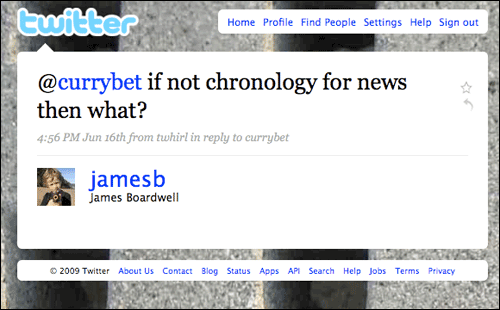
Oh, I thought. I suppose I'd better address that point - maybe I haven't thought this through properly.
We've been gathering news in chronological order for thousands of years for a reason. It is what we do. Events happen, a narrative emerges, new facts are uncovered, and people react to the original news. It would be perverse of me to stand up and say we should stop doing that.
However, this is what worries me. At an unconference like News Innovation there are representatives from the Guardian, Times, Telegraph, BBC, Channel 4 and many other British news organisations. Just imagine the vast array of quality content that has been produced by these media outlets over the last few years about one of the defining geopolitical issues of our age - 'climate change'. Articles, comment, analysis, interactive tools, radio programmes and documentaries - you name it, we've made it.
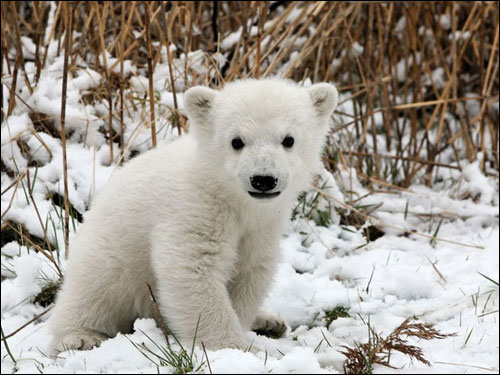
(I'm given to understand that nobody takes climate change seriously unless there is a picture of a polar bear involved)
But ask British children to research 'climate change' for their school projects, and the chances are they will type 'climate change' into the Google search engine run by an American corporation, and click straight on to a page produced by volunteers, funded by the American Wikipedia foundation.
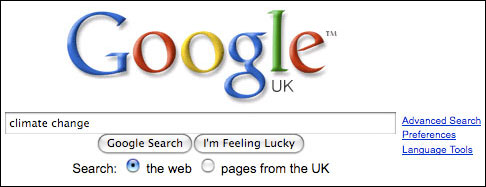
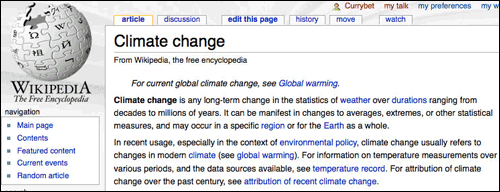
Next...
Tomorrow, in part 2 of this series, I'll be looking at why I believe our obsession with chronology has lead us to this point.